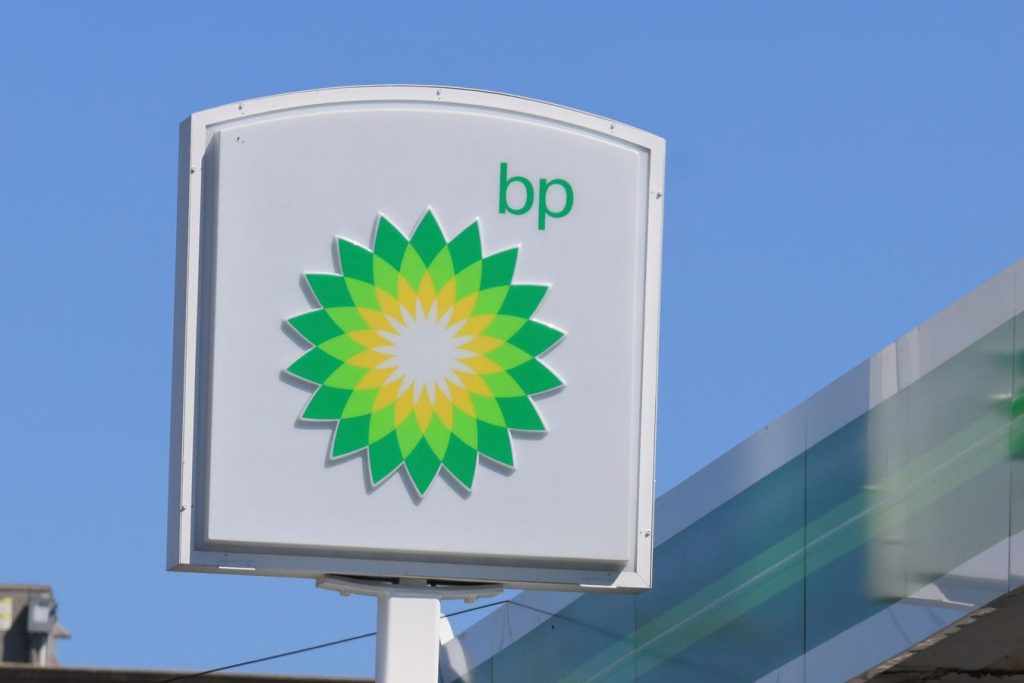BP’s Current Standing and Q3 2024 Performance:
British Petroleum (BP) has experienced a 14% year-to-date decline in its stock price, settling around $29 per share. Despite this downturn, the company exhibits promising long-term growth potential. While geopolitical uncertainties and fluctuating oil and gas prices present challenges, forecasts suggest price stabilization in the foreseeable future. BP’s recent third-quarter results mirror the broader trend of declining oil prices, which fell 17% due to global demand concerns. The company’s Q3 2024 underlying replacement cost profit, a key profitability indicator, reached $2.3 billion, surpassing analyst expectations of $2.1 billion but marking a decline from the previous quarter and the same period last year. Revenue also decreased by 11% year-over-year, primarily attributed to lower oil and product prices. The company’s net debt increased to $24.3 billion, reflecting lower operating cash flow, increased capital expenditures, and reduced divestment proceeds. Despite these challenges, BP is actively pursuing strategic initiatives like share buybacks and expanding its low-carbon energy portfolio to enhance cash generation and mitigate the impact of fluctuating oil prices.
Strategic Initiatives and Shareholder Value Enhancement:
BP has announced a significant $3.5 billion share buyback program for the second half of 2024, supplementing the $1.75 billion buyback completed in Q3. This additional program, representing roughly 3.5% of the company’s market capitalization, aims to bolster the stock price. Furthermore, BP has reiterated its commitment to repurchase at least $14 billion worth of shares by 2025, potentially delivering substantial returns to shareholders. These share buyback initiatives, combined with the company’s strategic investments in low-carbon energy, demonstrate a proactive approach to enhancing shareholder value and navigating the evolving energy landscape. The company is balancing these efforts with continued investment in oil and gas operations to meet current energy demands.
Production and Capital Expenditure Outlook for 2024:
BP projects slightly higher overall production for 2024 compared to 2023, with increased oil production and operations offsetting lower gas and low-carbon energy production. Capital expenditure, including inorganic investments, is expected to be around $16 billion for the year. The company also anticipates over $3 billion in divestment and other proceeds, contributing to its goal of exceeding $25 billion in such proceeds between the second half of 2020 and 2025. These projections indicate BP’s focus on maintaining and strategically growing its core business while also pursuing its long-term transition strategy.
Financial Forecasts and Valuation:
Revenue forecasts for BP in 2024 are estimated at $200 billion, a 6% decrease year-over-year. Based on these revenue projections and anticipated earnings per share, BP’s valuation is estimated at $37 per share, utilizing a price-to-earnings multiple of 10.1x and an expected EPS of $3.67. This valuation suggests a potential 28% upside from the current market price, indicating that the stock may be undervalued. The company believes its investments in both traditional energy and its transition to lower-carbon solutions will provide long-term value for investors.
Comparative Performance and Portfolio Considerations:
While BP has demonstrated consistent stock price increases over the past three years, its performance has not consistently outpaced the broader market. Alternative investment strategies, such as diversified portfolios like the Trefis High Quality Portfolio, may offer smoother returns and potentially higher long-term growth with lower volatility compared to individual stocks. These portfolios aim to mitigate risk by diversifying holdings across a range of high-quality companies. This comparative analysis highlights the importance of considering portfolio diversification and risk tolerance when making investment decisions.
BP’s Transition to Low-Carbon Energy:
Beyond traditional oil and gas operations, BP is strategically investing in the future of energy by allocating significant resources to low-carbon initiatives. These investments encompass electric vehicle charging stations, biofuels, hydrogen fuels, and advancements in fueling station technology. While initially aiming for net-zero emissions by 2050, BP has revised its target to a 35-40% reduction in overall emissions by 2030. This adjusted target reflects a balanced approach, acknowledging the continued importance of oil and gas while actively pursuing a transition to a lower-carbon energy future. This dual focus allows BP to address current energy needs while positioning itself for a future where sustainable energy solutions play a more prominent role.

